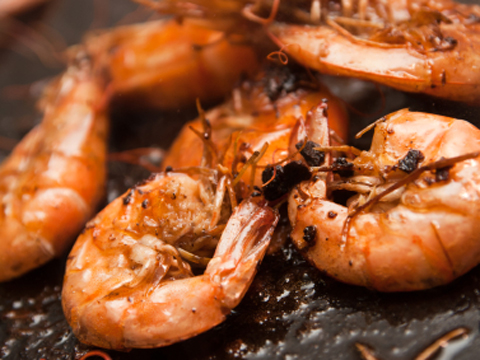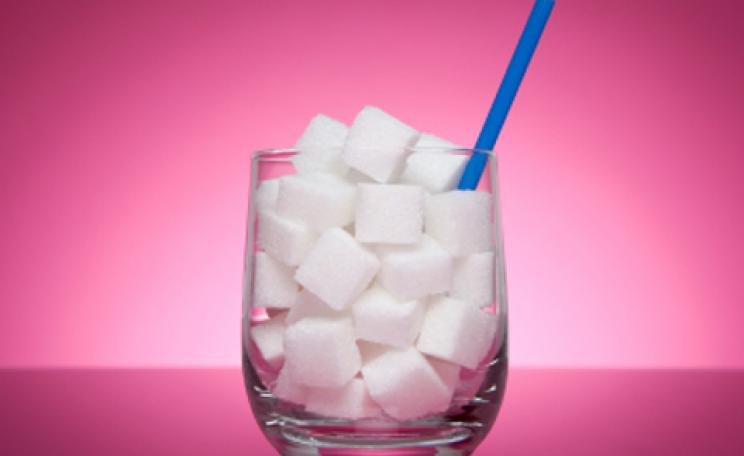Shaken or stirred, recreating the bar experience at home is becoming ever more popular as the economic downturn makes staying in the new going out. But staying in doesn’t necessarily mean green. The Waste and Resources Action Programme (WRAP) estimates that the carbon footprint of alcohol consumed in the UK is 1.5 per cent of the UK’s total greenhouse gas emissions. The life cycle of the product adds to this and needs to be considered when making the green choice.
One of the easiest ways to go green is to go organic. Chris Parker is the owner of the Surrey-based Organic Spirits Company. 'Normal fertilisers contain a mixture of natural phosphates, which are gradually running out,' he says. 'There's also nitrates which, in terms of pollution, give off nitrous oxide which is 300 times as toxic as carbon dioxide.' Dr Paul Taylor is a Carbon Trust advisor who specialises in food and drink. He agrees that farming practices are important. 'If there's an agricultural component they need to be careful of not using too many fertilisers,' he says. Parker says that, after winning 36 international medals, the proof of the Organic Spirits Company's product is in the drinking. 'Independent judges who are blind tasting have been picking out our products against the world's best,' he says. Fans of organic cocktails say they taste smoother and fresher.
What's on your doorstep?
Keeping it local by foraging in local hedgerows and visiting local farmer's markets can produce fresh, seasonal ingredients to make your own mixers and even brew your own alcohol. London based Treehouse Kitchen make ethical mixers Dalston Cola and Raw Fiyah ginger beer. Co-founder Duncan O'Brien says that if he was having a cocktail party he would be getting out the juicer. 'Unfortunately at this time of year your sustainable cocktail palate is fairly limited, you may have to stick with Martinis.  But come summer the UK is bursting with fruit which can be easily blended up.' O'Brien says small scale businesses inherently have less impact than bigger ones, so buying products from local companies is always a good bet. Gavin Partington from the Wine and Spirit Trade Association (WSTA) agrees, recommending that buying products that have been bottled locally also a good idea.
But come summer the UK is bursting with fruit which can be easily blended up.' O'Brien says small scale businesses inherently have less impact than bigger ones, so buying products from local companies is always a good bet. Gavin Partington from the Wine and Spirit Trade Association (WSTA) agrees, recommending that buying products that have been bottled locally also a good idea.
Fair's fair
According to WRAP, UK consumers buy around 116,700 litres of spirits each year, which apart from whisky and gin, are largely imported. Fairtrade is usually the most eco-friendly option for imported products as the Fairtrade standard requires producers to work to protect their natural environment. The Organic Spirits Company and FAIR.Spirits both sell Fairtrade spirits that are people friendly as well as planet friendly. 'Our rums have always been Fairtrade,' says Parker. 'About five or six years ago we realised the Fairtrade bit was starting to be as important to people as the organic bit.' The company's Papagayo rums were the first Fairtrade and organic rums in the world and they say they have the lowest life cycle carbon footprint of any other rum available in the UK. FAIR. Spirits' Paul Bungener says that being Fairtrade is an important commitment to sustainable development. 'We’re helping to provide economic stability to the farmers we work with. The fair price enables them to be able to continue their business, to our and their mutual benefit,' he explains. The whole package
The whole package
According to WRAP the spirits industry requires an estimated 170,000 tonnes of, mainly glass, packaging each year. Finnish organic spirits company Pramia were awarded Green Spirits Company of the Year at the 2012 Drinks Business awards. They use 100 per cent recycled plastic PET bottles. Using plastic instead of glass is not an obvious way to be more environmentally friendly but export manager Minja Kivenen says it's very effective, especially as they combine it with organic production fuelled by wind energy. 'For Pramia, it has seemed like a logical step,' she says. 'It's only unusual because we are the pioneers in doing so.' According to the WSTA, PET is 85 per cent lighter than glass so it's less energy intensive to transport. Ainslie Macleod of the Carbon Trust says how much companies are willing to change packaging can depend on how much of it the consumer sees. 'In the case of cocktails it is less important as the initial aesthetic does not play such a big role in a consumer's purchasing decision,' she says. According to Dr Taylor, although being organic or Fairtrade is a positive step, products that concentrate on the whole journey are the ones likely to be the most green. And his top tip for the perfect eco drink? 'Make sure you finish your cocktail so you're not discarding your footprint down the sink.' Well, that doesn't seem too difficult.
Try this: Rosemary and Tonic
Ditch the Pimms for this refreshing summer cocktail, exclusively created for Ecologist readers by the Organic Spirits Company’s mixologist, Joe McCanta
You will need:
50ml Juniper Green Gin
Slice of pear
Fresh chopped rosemary
Squeeze of 1/8th of fresh clementine (alternatively use lemons)
Top with tonic water (for a spicier version try ginger beer)
Method:
Combine all ingredients in a whiskey tumbler, squeezing in the clementine last
| READ MORE... | |
 |
GREEN LIVING The dark side of soya: how one super crop lost its way A decade ago, soya was being hailed as a superfood but in recent years, numerous issues surrounding deforestation and its impact on health have come to light |
 |
GREEN LIVING In season now: what to eat during May Slow Food UK CEO, Cat Gazzoli, dips into the UK's forgotten flavours to bring us her gastronomic pick for May |
 |
GREEN LIVING Top 10...alternatives to sugar Want to give up sugar while still indulging your sweet tooth? Mark Briggs rounds up 10 natural alternatives |
 |
GREEN LIVING Five of the best… country pubs Fresh, locally sourced produce, real ale and cosy fireplaces: the Great British country pub is one foodie tradition that’s not going anywhere. Rachael Stubbins rounds up five of the best |
 |
GREEN LIVING Roadkill: sickening or sustainable? The idea of eating meat sourced from the roadside - whether deer, pheasant, fox or even otter - might sound revolting to you but for some, it's a gastronomic opportunity and a way of avoiding factory farmed meat |








